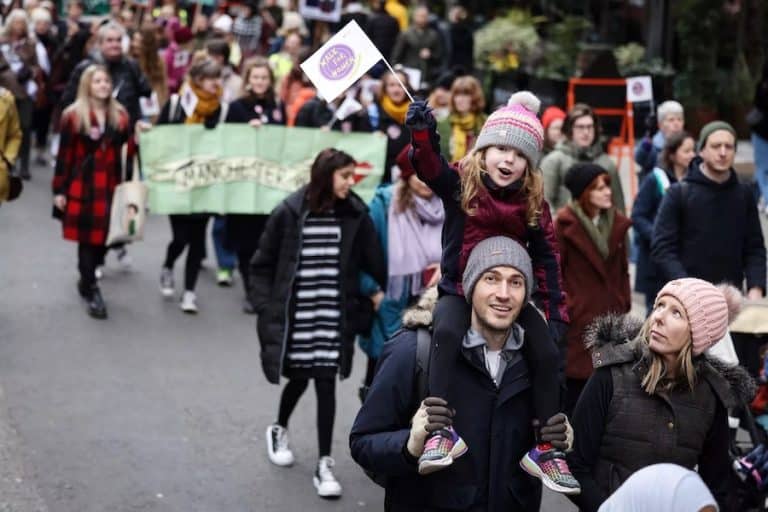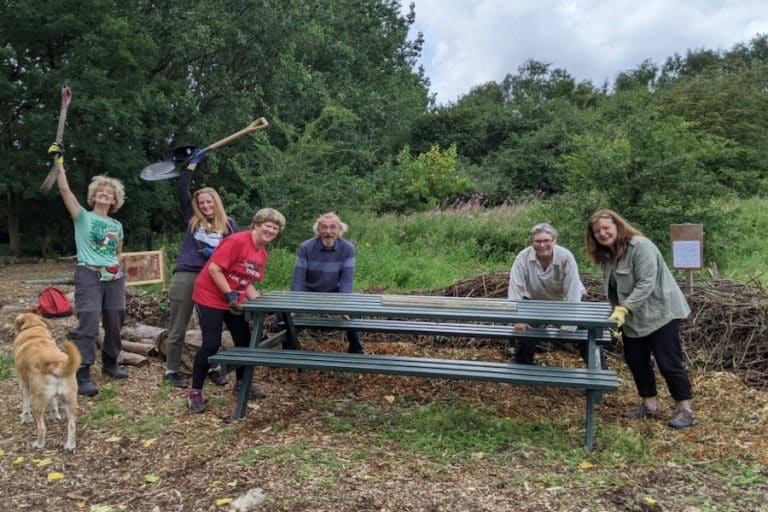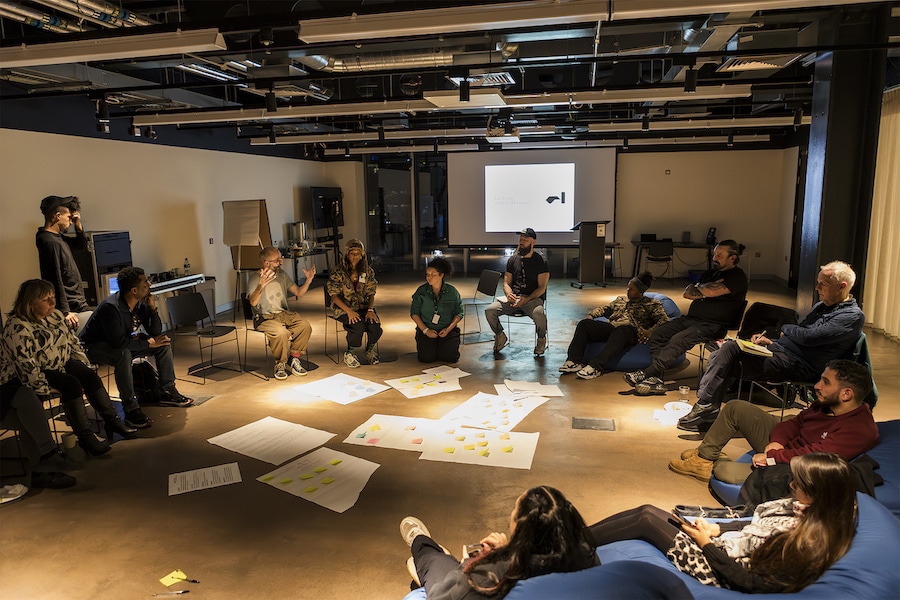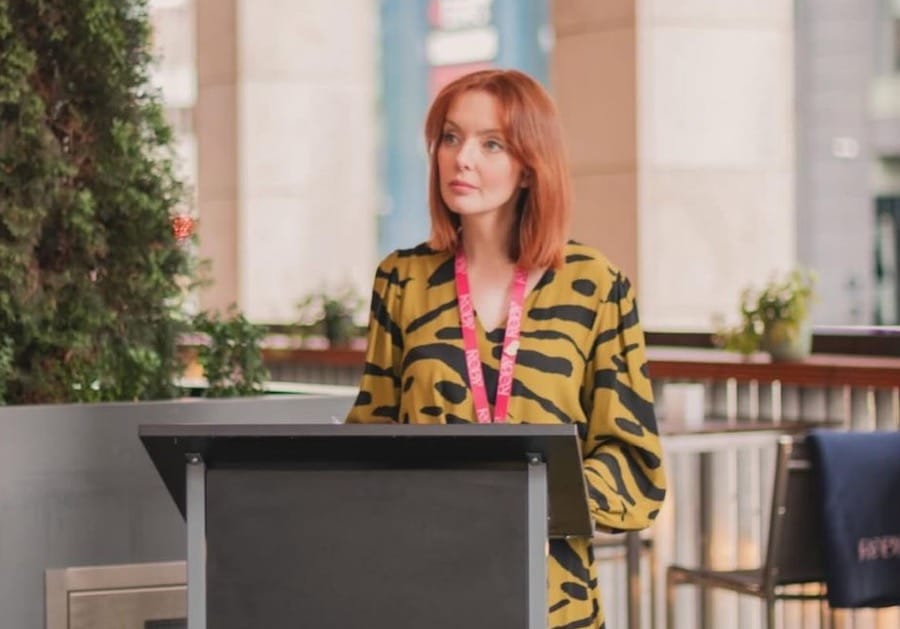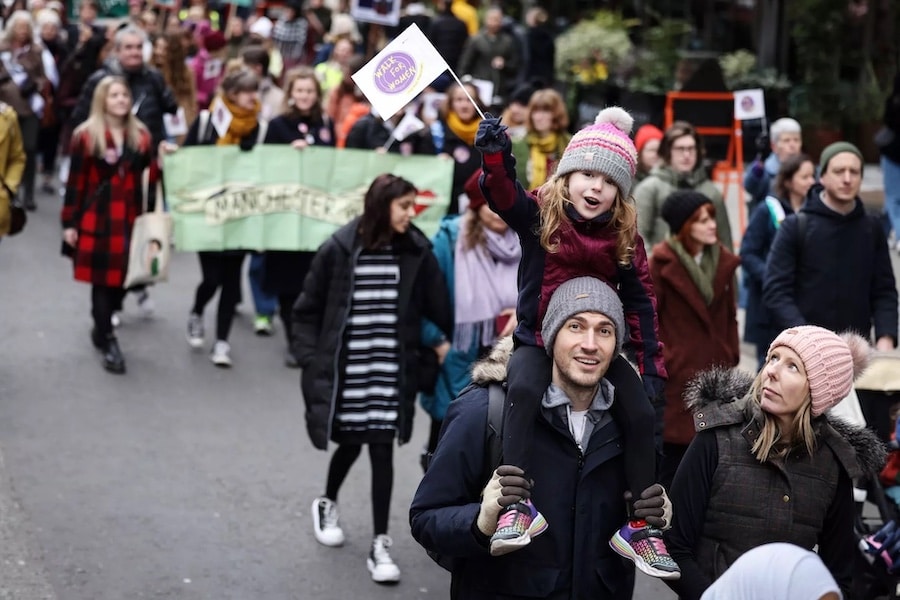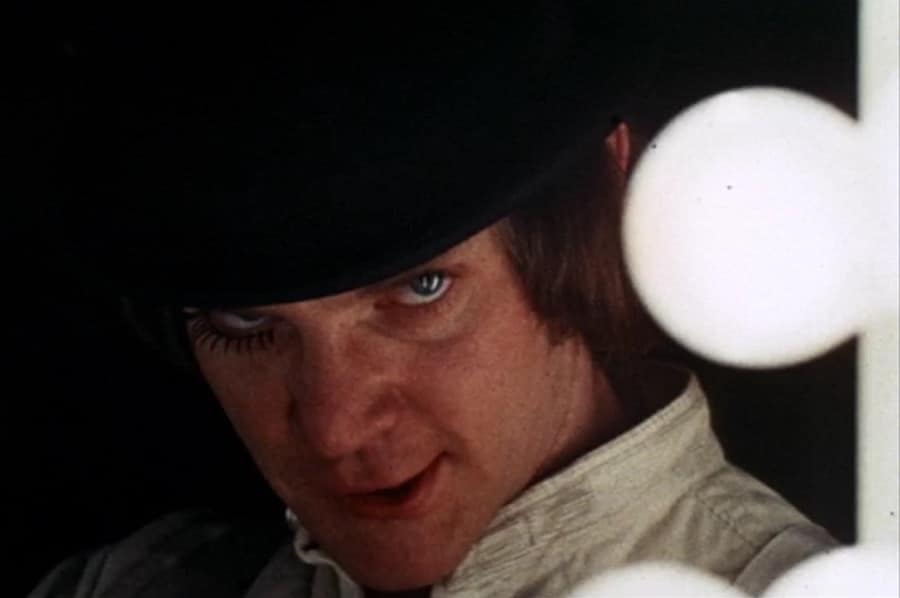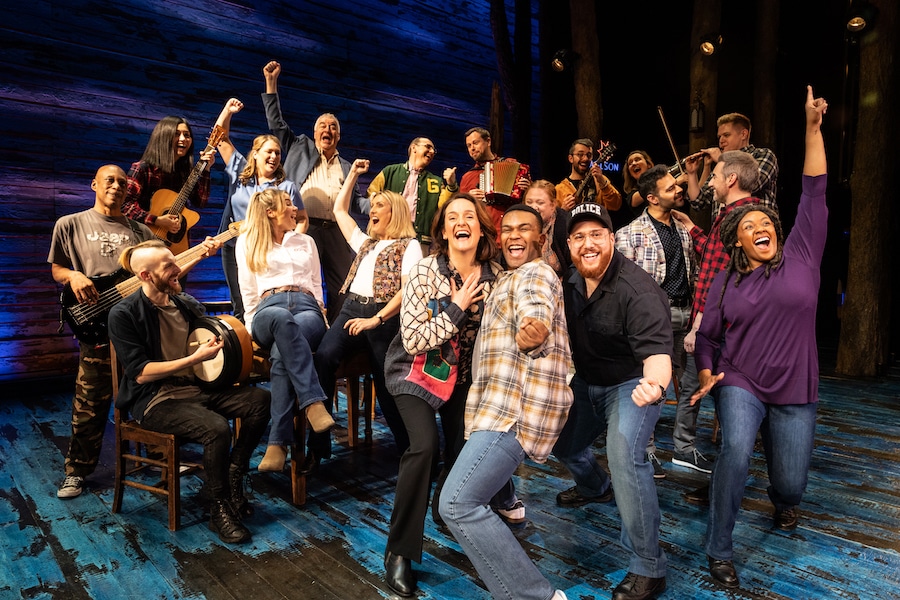The Manc pioneers of ladies football to be immortalised in incredible new film
- Written by Thom Bamford
- Last updated 12 months ago
- City of Manchester, Featured, History, Sport
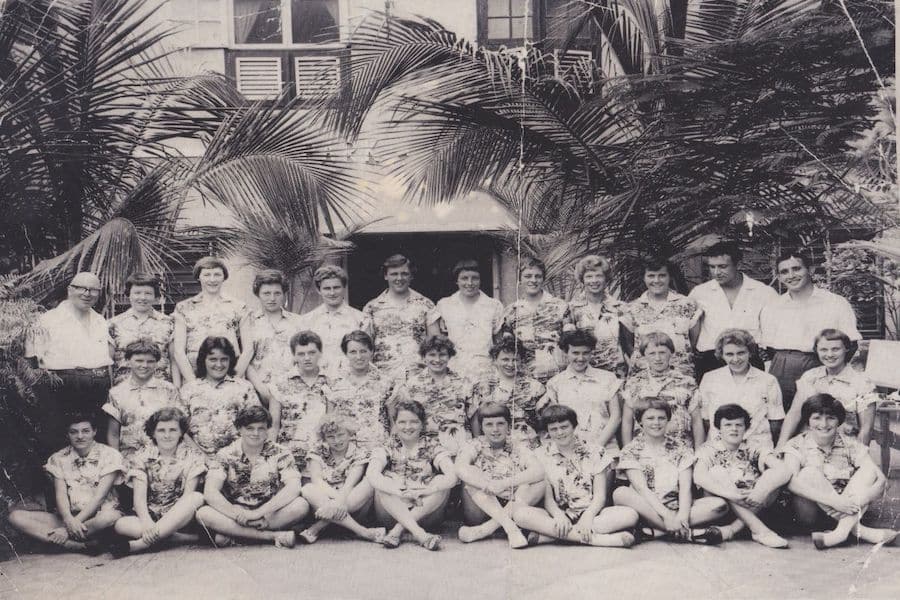
A group of passionate filmmakers are trying to self-fund a film documenting one of the World’s first female football teams called Corinthians: We Were the Champions.
These incredible women from Manchester defied convention at the time and became global super stars, yet their story hasn’t been told in the UK.
The Corinthians, a pioneering ladies’ football team from Manchester found fame in the ’60s and ’70s playing to tens of thousands of fans across Europe and South America.
Hailing from Manchester, the Corinthians gained renown in the 1960s and 1970s, captivating audiences across Europe and South America with their remarkable talent and rare defeats on the field.
Managed by Percy Ashley, the Manchester Corinthians defied the Football Association’s ban on women playing on FA-affiliated grounds, assembling a formidable team of local women in 1949.
The Corinthians
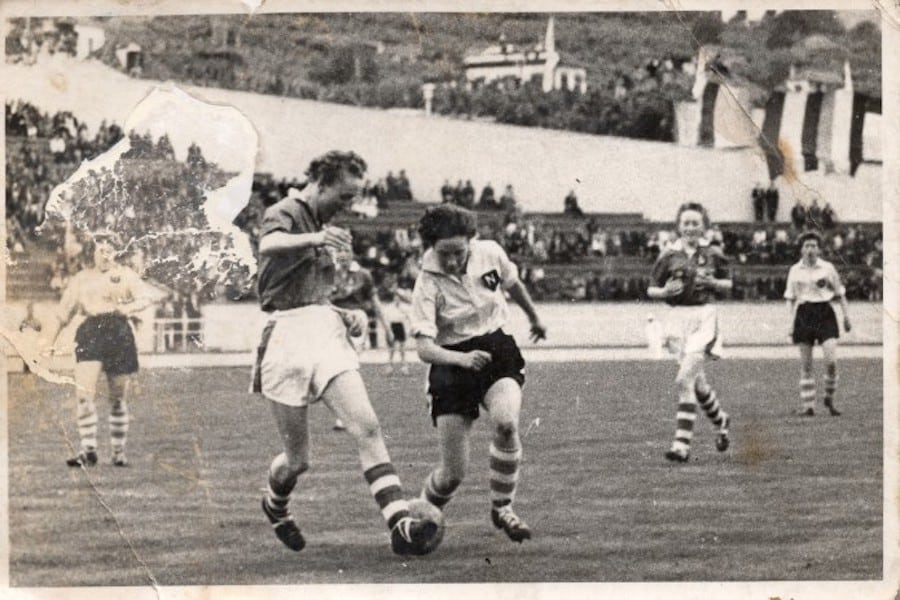
Despite initial disapproval from the FA, the Corinthians embarked on global tours, showcasing their skills and leaving an indelible mark on the sport.
Their enduring legacy laid the groundwork for the Lionesses’ European Glory in 2022.
Now, 75 years later, the Corinthians are poised to return to the limelight as the focus of a documentary. However, the filmmakers face the challenge of raising £65,000 to bring their vision to fruition.
You can donate to this cause by clicking here
A testament to their impact, a blue plaque was unveiled last October in Didsbury at Fog Lane, where the team once trained, commemorating their legacy.
The History of The Corinthians
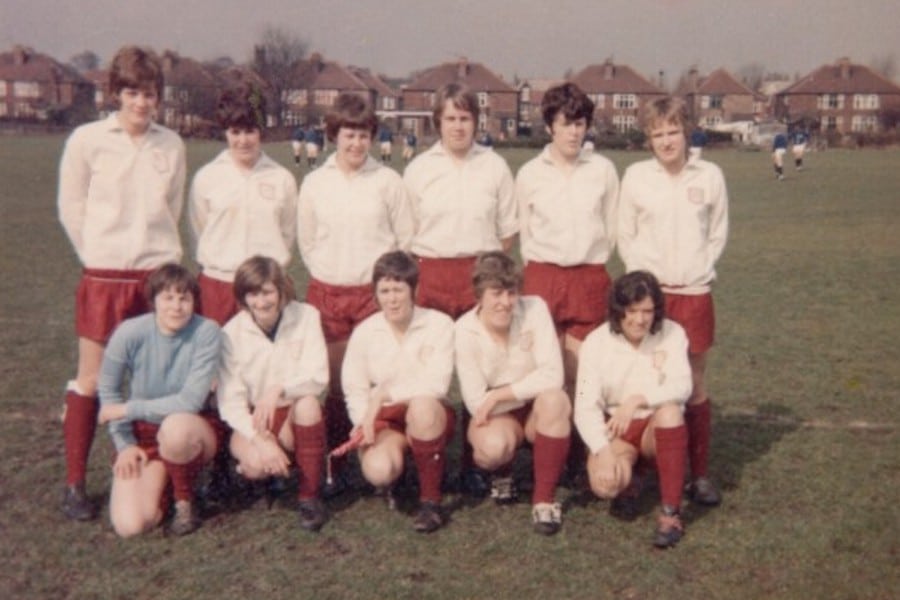
Formed in 1949, The Corinthians defied the odds and persisted despite the Football Association’s ban on women’s football dating back to 1921, which deemed the sport “unsuitable” for women.
Undeterred by the ban, The Corinthians pressed on, even as football remained off-limits for women throughout much of their club’s history.
The Football Association prohibited The Corinthians from playing on Football League Grounds or pitches owned by FA-affiliated clubs, yet this restriction failed to halt their determination.
Finally, in 1971, the ban was lifted, marking a significant milestone for women’s football.
These remarkable rebels are now the focus of an inspiring film, highlighting their journey of packing stadiums worldwide and their remarkable record of infrequent losses.
Former players starring in the documentary include Jean Wilson, who went on to play for the first ever official England Women’s Team and only recently received her England cap.
Corinthians veteran Margaret ‘Tiny’ Shepherd, who played with the team in an unofficial European Cup against Juventus in 1970, said: “I think anyone taking up any sport, not only football, should be educated in the history of that sport.
“They should be aware, especially in women’s football, just what the pioneers went through to play a game they loved. Would they still have considered playing if they had to face the stigma and barriers that the Corinthians had to face? This film tells it how it was.”
As one of the most successful women’s teams in history, The Corinthians defied societal norms to secure trophies across Europe, predating the successes of clubs like Manchester United and Manchester City. They even unofficially represented England against Germany as early as 1957.
Over two decades, they amassed an impressive collection of 50 trophies.
Today, Lionness legend Ella Toone has urged fans to support the crowdfund.
She said: “The history of the women’s game is hardly ever seen on TV.
“It would be great if fans of women’s football could back this film and help make it happen.”
“The Corinthians story is absolutely amazing and I can’t wait to watch this film and find out how they became so successful when women were banned from playing on official pitches.
“As Lionesses we believe in being the football role models to girls that we never had ourselves.
“The Corinthians are the legends that we, as players, can look up to who paved the way for the women’s game.”
“Growing up I had no idea there had been such a pioneering team from Manchester playing all over the world and beating teams like Juventus.
“It’s great this documentary is going to give them the glory they deserve, so young girls today can be inspired.
“I really like giving back to where I came from and I’ve found out one of the Corinthians, Margaret ‘Tiny’ Shepherd is from my hometown of Tyldesley. So I’d love to see her get the glory the team should have had years ago.”
How did they rise to become international stars, crisscrossing the globe?
This is the captivating question at the heart of their story.
Corinthians: We Were the Champions director Helen Tither
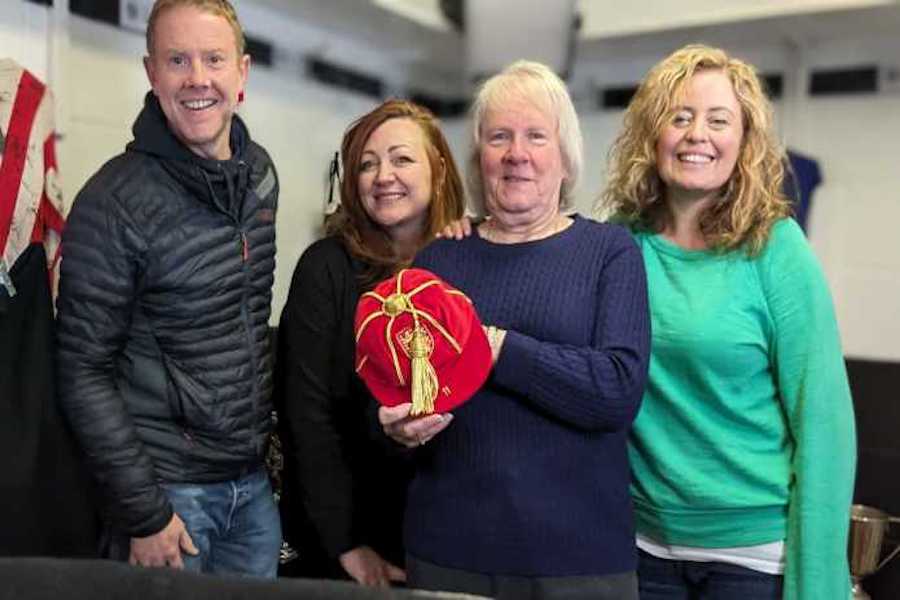
We sat down with Corinthians: We Were the Champions film director Helen Tither to talk why she wanted to bring this incredible story to light.
What initially drew you to the story of The Corinthians and inspired you to make a documentary about them?
I had covid in 2022, i was sat in bed reading – i saw a feature on the MEN about them about them. IT got me thinking, why haven’t I heard about this? It is an incredible story.
I’d worked in the city for the MEN for 20 years, so how it slipped through the net – I have no idea.
I loved these incredible personal stories of strong female characters. They are so inspiring. I had previously done a documentary on Emmeline Pankhurst, and another about forgotten inventors from the North West.
I met up with the surviving members at the national football museum – pitched it to them telling the story in their own words and they were very receptive.
They were all amazing – they had never been asked. It’s such an amazing story that needs to be told.
Could you share a bit about the research process involved in uncovering the history of The Corinthians and their impact on women’s football?
All of the women we’ve encountered have been amazing.
We’ve had the opportunity to meet former players; at the moment, we’ve interviewed ten players already.
We’re currently in the process of editing and filming the documentary. There may be more interviews in the pipeline, but so far, we’ve worked with ten individuals who have been absolutely fantastic — real megastars.
I think what’s significant about this story is that, at the time, these women were largely ignored and dismissed.
Even if there were occasional mentions of them in the press, some articles tended to ridicule them, or they simply didn’t receive the recognition they deserved. In the years that followed, their story faded into obscurity, becoming somewhat of a forgotten secret.
Some of these women never disclosed their involvement in football to anyone outside their immediate family for years, until the women’s Euros brought it to light again.
For decades, it was a well-kept secret for many of them. Now, however, all of the women involved are eager to share their experiences and stories.
It’s a diverse mix of reactions, but my aim was to ensure that they could authentically share their personal stories exactly as they wished.
After an initial group meeting, where I met about 20 individuals, I began meeting with them individually.
I visited each of their homes, shared countless cups of tea, sifted through scrapbooks — essentially conducting the type of thorough research typical of a journalist working on a story.
Through these interactions, I got to know them personally and ensured that we accurately documented their narratives in their own words.
This became the foundation for our film interviews: their memories, their perspectives, and their desired messages.
It involved quite a bit of traveling, as they are spread throughout Greater Manchester.
Nevertheless, it’s been a delightful experience.
They are a wonderful group of women, many of whom have maintained strong friendships over the years.
We even have a WhatsApp group where we stay in touch regularly. Overall, it was a traditional approach to research — visiting people, engaging in conversation, and building connections.
How did you go about gathering footage and archival material for the documentary?
There’s very limited moving footage available, but the women have generously shared a wealth of personal photographs from their tours and experiences, which is truly wonderful.
Additionally, we’ve gathered newspaper clippings and photos, particularly from the Manchester press, which covered their journeys abroad and their return home. These articles, mostly from local publications, were a source of pride for them, often accompanied by photos sent in by their parents.
However, when it comes to traditional movie footage typically included in documentaries like this, there’s a scarcity. To address this gap, we’ve devised a creative solution: a comic book in which was nonexistent during their time due to the ban on women’s football.
Collaborating with an animator and illustrator, we’re using the women’s own words and stories to craft a comic book depicting key events such as significant matches and memorable moments from their adventures. The animators will then breathe life into these comics, effectively reimagining their highlights in a vibrant, football-themed narrative.
This approach not only aims to vividly recreate their experiences but also fulfils a nostalgic yearning by providing the women with something they never had — comics that celebrate girls’ football. It’s a creative endeavour that resonates with their youthful rebelliousness and zest for fun during their tours, capturing the essence of their remarkable matches and adventures.
Can you discuss the significance of The Corinthians’ legacy in the context of women’s football history?
They were undoubtedly one of the most successful women’s teams in the UK, leaving behind a significant legacy. Their success in touring abroad was remarkable; notably, they clinched an official European Cup in Germany back in 1957 — an achievement predating similar victories by United and City in Europe. This success profoundly influenced the trajectory of women’s football in those areas.
Moreover, their defiance of the ban on women’s football was monumental. Despite the obstacles, they persisted, ultimately becoming key figures in the formation of the Women’s Football Association (WFA). Notably, two Corinthians players even featured in the inaugural England women’s team. Their resilience and perseverance against the ban paved the way for the development of women’s football, particularly during its surge in the 1970s.
Without teams like the Corinthians laying the groundwork and maintaining the spirit of the game through difficult times, the resurgence of women’s football in the ’70s would have faced significant challenges. Their enduring legacy is undeniable. However, it’s unfortunate that their impact isn’t more widely recognised within the city.
What they truly deserve is to be celebrated as legends alongside City and United. They should serve as inspirational figures for today’s generation of female footballers. Many young players today may not be familiar with the heroes of the ’50s, ’60s, and ’70s, but this documentary presents an opportunity to establish that legacy, providing current players with role models to aspire to.
We’re collaborating closely with the Manchester FA to ensure that this documentary serves as a catalyst for positive change, inspiring girls within local clubs across Manchester. Our hope is that the film will ignite a newfound passion for the game and motivate the next generation of female footballers.
Were there any particular individuals or stories within The Corinthians’ history that stood out to you during the filmmaking process?
Oh, God, they’re all just amazing. Honestly, we’ve had such a wonderful time meeting each and every one of them. They’re absolutely hilarious, but beyond that, their talent on the field is truly remarkable. They amassed numerous trophies, and their discussions about football are simply captivating. From the positions they played to their unique style of play, every aspect is fascinating. However, it’s their personal stories that truly shine.
Many of these women came from humble beginnings, hailing from working-class families in Manchester. Their narratives often reveal the sacrifices their families made to support their football endeavours, from scrimping on funds for travel expenses to struggling to afford passports. It’s incredibly moving to hear them speak about these challenges.
Yet, amidst the hardships, there are also tales of laughter and camaraderie from their tours. Parties on the beach and other antics add a delightful touch of humor to their adventures.
We’ve invested considerable effort into building rapport with them and ensuring they feel comfortable sharing their stories with us during the filming process. We’re collaborating closely with them throughout the production to ensure that their voices are accurately represented.
They’ll remain integral partners in the editing process, ensuring that the final product aligns with their vision. When it comes to any premieres or screenings, they’ll undoubtedly be the guests of honour. After all, it’s their story we’re telling, and our role is simply to facilitate and support them in sharing it authentically.
We’ve developed a strong working relationship with them, resulting in a treasure trove of amusing anecdotes and heartfelt accounts. They all tell it like it is, I think that’s uniquely Mancunian trait.
If you’ve seen the trailer we released, you’ll notice that refreshing attitude shining through. It’s a departure from the seriousness often associated with sports documentaries, which typically focus solely on the sporting event at hand. What sets this project apart is how the personalities of these women truly shine through.
They speak their minds freely, showcasing their authentic selves without reservation. It’s a breath of fresh air to witness their candidness and genuine enthusiasm. Unlike many contemporary sports figures who undergo extensive media training and PR grooming, these women are unapologetically themselves.
They delve into personal experiences, injecting a touch of emotion and relaxation into the narrative. It’s a more intimate and humanising approach that resonates deeply with viewers. This documentary isn’t just about the game; it’s about the individuals behind the jerseys, their triumphs, struggles, and everything in between.
Their openness and honesty make for a compelling and relatable viewing experience, offering audiences a glimpse into the lives of these extraordinary athletes beyond the confines of the pitch.
Finally, what was the most rewarding aspect of making this documentary for you personally, and what do you hope audiences will take away from it?
As a journalist, you understand that feeling when you stumble upon a captivating story — it’s like a spark igniting within you. For me, the most rewarding aspect of this project has been witnessing these women share their stories for the first time in front of the camera.
Filming their interviews was an incredibly fulfilling experience. To see them come alive, to watch their passion and resilience shine through as they recounted their experiences, was truly remarkable. After being sidelined and overlooked for so long, It’s incredible to get them to share their stories.
Their courage and authenticity were truly inspiring, and I couldn’t help but feel immensely proud of them. This, above all else, has been the most rewarding aspect of this journey.
From the very inception of this project, one driving force has remained constant: the desire to shed light on a lesser-known chapter of history. While most are familiar with the narrative of women’s involvement in football during wartime and the resurgence of the sport in the 1970s, the period in between remains shrouded in obscurity.
Yet, within this obscured history lies a trove of remarkable stories — stories of resilience, defiance, and perseverance against all odds. These were girls and women who dared to challenge the status quo, who refused to be silenced by societal constraints. Theirs is a narrative of courage in the face of adversity, a testament to the indomitable spirit of those who refuse to be confined by limitations imposed upon them.
What I hope to convey to people is the truth — that women have always been a part of football’s tapestry. Despite being banned by the establishment, they persisted, carving out their own paths and leaving an indelible mark on the sport. I want this untold history to serve as a source of inspiration, not just in the realm of sports or football, but in any endeavour where individuals are told ‘you can’t.’
These women are pioneers, beacons of resilience and determination. Their stories are a reminder that barriers are meant to be overcome, and that the human spirit is capable of transcending any obstacle in pursuit of its dreams. That, to me, is the true essence of their legacy — a legacy of empowerment and inspiration for generations to come
Backed by the National Football Museum
The film has been lauded as historically significant by the National Football Museum, whose curator Dr Alex Jackson commented: “It is important that the wider history of women’s football is communicated to the public.
“Manchester Corinthians are a very important team in the history of women’s football in England.
“Beyond their sporting achievements, their story is also important for its wider social story.”
He is currently working with the filmmakers to add extracts from the film to the museum’s permanent collection.
Why should you help fund this film?
Corinthians: We Were the Champions promises to tell the full unvarnished story of these rebellious Mancunian women who became global pioneers for the women’s game.
For as little as £1 or £5 – the price of a coffee! – you could be part of a movement to put women firmly into football history and celebrate a team who fought the sporting system.
For £10 you can have a personal numbered certificate commemorating your donation.
When you watch the trailer of these amazing women (above) you can see why this story deserves to be told.
The mighty Corinthians Ladies Football Club from Manchester not only defied the ban – but smashed it to pieces by going on a global winning spree decades before the officially recognised England women’s team.
For decades these players have been side-lined and many have sadly died without sharing their stories.
This world first documentary gives these courageous and determined veterans – now in their 70s and 80s – the chance to finally have their say.
PLUS it is a film supported by the National Football Museum and that we plan to share with women and girls clubs to inspire young players today.
You can donate to this incredible effort by clicking here
- This article was last updated 12 months ago.
- It was first published on 4 March 2024 and is subject to be updated from time to time. Please refresh or return to see the latest version.
Did we miss something? Let us know: [email protected]
Want to be the first to receive all the latest news stories, what’s on and events from the heart of Manchester? Sign up here.
Manchester is a successful city, but many people suffer. I Love Manchester helps raise awareness and funds to help improve the lives and prospects of people across Greater Manchester – and we can’t do it without your help. So please support us with what you can so we can continue to spread the love. Thank you in advance!
An email you’ll love. Subscribe to our newsletter to get the latest news stories delivered direct to your inbox.
Got a story worth sharing?
What’s the story? We are all ears when it comes to positive news and inspiring stories. You can send story ideas to [email protected]
While we can’t guarantee to publish everything, we will always consider any enquiry or idea that promotes:
- Independent new openings
- Human interest
- Not-for-profit organisations
- Community Interest Companies (CiCs) and projects
- Charities and charitable initiatives
- Affordability and offers saving people over 20%
For anything else, don’t hesitate to get in touch with us about advertorials (from £350+VAT) and advertising opportunities: [email protected]

LOWRY’s Quays Theatre gets a plush new look thanks to award
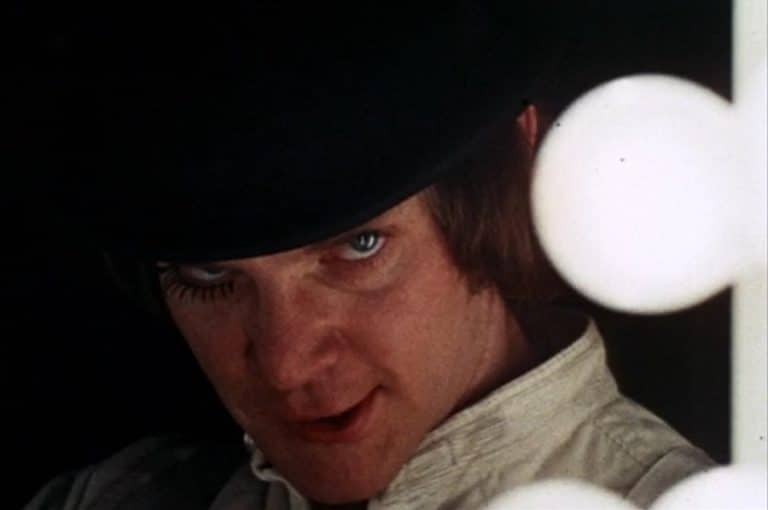
What is the legacy of Manchester’s most controversial (and maybe best) novel?

Big Issue, bigger heart: Manchester comes together for Colin
